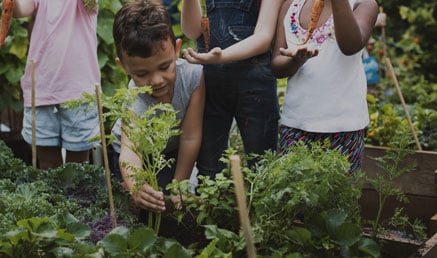
“It’s our polite nudge in the ribs to help you and your team stay organised and on task.”
This week’s subject is: Healthy lifestyle
Element 2.1.3: Healthy eating and physical activity are promoted and appropriate for each child
Children’s health, nutrition and physical wellbeing contributes to their ability to concentrate, cooperate, socialise and learn. Learning about healthy lifestyles, including nutrition and physical fitness, is integral to the wellbeing and self-confidence of children and equips them with the knowledge and confidence to make positive choices towards a healthy lifestyle.
Does your Service consistently promote healthy eating and lifestyle to families? Services also have a responsibility to provide families with current information and resources to help them become better equipped to make choices that support the health and nutrition of their family.
Healthy eating:
Ensure your menu is nutritious, varied, informed by current research and developed in consultation with educators, families, professionals and children. It must meet the nutritional needs of all children and cater to children with allergies and special dietary requirements.
-
- Ensure records of children’s allergies, intolerances and special dietary requirements remain current and are communicated to all staff
- Seek input from children by requesting feedback about the menu and meals provided
- Provide families with information from reputable sources about healthy eating and lifestyle
- Share recipes of your Service’s popular menu options/meals for families to try at home
- Share information about the Service’s menu planning procedure, how the food provided is nutritional and meets the individual needs of all children
- Provide families with the Service’s Nutrition Policy upon enrolment and request input from families when reviewing the policy via your newsletter or information sharing app
- Invite families to share nutritious, traditional recipes from home
- Share your menu with families each week and provide them with the opportunity to provide input and feedback
- Implement strategies to ensure mealtimes are relaxed and enjoyable
- Plan cooking experiences with children that inform of and promote healthy eating
- Select recipes that represent the cultures of the children and community
- Educators must role model healthy eating and lifestyle
- Safe drinking water must be always readily available
Healthy eating resources:
Healthy eating information for families:
Healthy School Lunchbox Planner
Healthy Lunchboxes- Fact Sheet
Nutrition and fitness- Preschoolers
Physical activity:
Physical activity enhances brain development, coordination and social and motor skills and helps children to build confidence in their own abilities, develop their independence, and enjoy being active. The educational leader and educators foster physical and psychological development in children by encouraging physical activity that is challenging, extends thinking and offers opportunities to take manageable risks. Guide to the NQF p158
Services should set up and plan their environment, educational program and resources with a focus on encouraging children to be active in a variety of contexts, whether during indoor or outdoor play, structured and non-structured activities.
-
- Use children’s interests (from information collected at enrolment) to guide the program planning and resources
- Survey children on their favourite sport, physically active games and creative movement
- Encourage children’s participation by making physical games/activities fun and acknowledge/award children’s participation through verbal encouragement
- Plan physically active experiences that are age appropriate, yet challenge children’s ability, allow them to experience success and extend their development
- Ensure educators are actively involved in physically active play, where appropriate
- Ensure that the environment is set up to facilitate safe physically active play that is free of hazards
- Plan fun and engaging experiences that allow and encourage children to be creative and expressive (creative movement, dance, drama, yoga)
- Educators take opportunities to discuss the importance of physical activity for our overall health and wellbeing
Physical activity resources:
Healthy Kids get active each day
We hear you- Seven Meters Squared
Physical activity information for families:
Using screen time and digital technology for physical activity: children and pre-teens
Physical activity for young children: 0-5
Physical activity for school-age children
Within System7 go to Quality Area 2/Modules 13, 14 & 15 to submit self-assessment notes and if required, open a QIP issue if you identify any areas of improvement.
The Childcare Centre Desktop has a range of resources to assist services with healthy lifestyle. These include Nutrition and Food Safety Policy, Vegetarian Menu Planning Checklist, Cultural and Religious Consideration at Mealtimes Guide, Service Menu Table, Menu Planning Checklist, Menu Evaluation Survey, Menu Development and Review Procedure, Physical Activity Policy and much more.
Resources, NQS Element, Regulation and System7 links:
Childcare Centre Desktop – Childcare Centre Desktop
National Quality Standard – QA 2/ 2.1.3- Healthy Lifestyle
National Regulations – 76, 77, 78, 79, 80, 168
System7 Module – QA2/ Modules 13-15
If you have any questions send us a note via the Contact page here!




